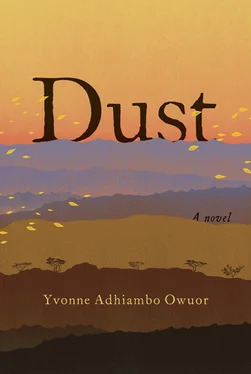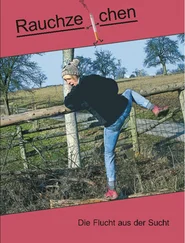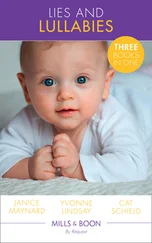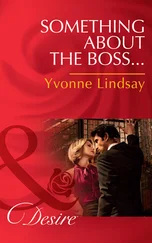Her nose twisted. “I’m old.”
Dying has a ghastly smell.
She had been fragile until the visit.
Her son.
She had dreaded this, had hoped to avoid it.
Now it had happened, adrenaline urgency.
All these invasions , she thought. One eats the body; the other deranges the soul .
Agitation.
Now engrossed with praying to the night through a wide bathroom window. Night obscured reality’s details. I love this dark . Not primeval, concealing, and heavy, like other darknesses. Leave my child alone , she tells those other nights. Let him alone .
A word: Uncontained .
Isaiah William, her son.
Uncontained , like … She snapped off her thoughts.
“I want my truest daddy!” the toddler had once screamed, and afterward his longing had become a suffocating mania, which she had ignored, waiting for the day he would outgrow it. The yearning wounded him, infected others, ate at him. But because she had erased the name, neither he nor she dared voice it. It had no room in their renewed existence. “Raulfe is your daddy.”
Bloody Kenya. Bloody.
Not blasphemy.
Bloody.
Blood had seemed to leak from too many holes there. A cut bled. Sunset bled. Sheep bled. Red mud roads bled. Sunset-sunrise bleeding. Oozing life, seeping death. The full moon bled on water.
She was not afraid of death. She had a list of her intimate dead, friends, people she once knew, beloved strangers. But she had also lived through an odd internecine war, seen bleeding headless bodies, bleeding bodiless heads, miscarried old love, watched practice fireworks of hope-to-be-better Kenya.
She had escaped to England from Kenya long before Kenya’s Independence Day. At Heathrow she almost flung herself on the tarmac in foaming glee. Home. Where death was wrapped in decorous packages — very well-mannered.
Now, glaring at the night, she snarls, “I’ll win.” She informs Kenya, “This one’s mine.”
Then.
Head over the sink, knees trembling, head pounding. The morphine wearing off into memories of crimson Nandi-flame-tree flowers lying crushed on earth roads. A smile. Even if she would not speak the name, she could write it.
Selene creeps over to a small blue desk.
Hospital notepaper, a faux fountain pen, and cramped fingers stretch out, stoking memory’s fire:
Darling Isaiah ,
There is a story behind every no, every maybe. Make of this what you will. One of the loveliest of patients here signs off his chemotherapy sessions by declaring, “When the wells are dry, men seek to drink at a mirage.” Keeps us laughing. This is a story about a dry well. If you look — I pray you don’t — you will find it close to a house of gargantuan pretensions, a pink folly. This is a small part of the story of the man who dreamed it, built it, and offered it to me: Hugh Bolton. You’ve idolized him as your father. I fled his desert, left him with his gift, for I had found you, and for you I would have forsaken my life .
Hugh .
We were as young as our generation could be in the sad season after the war when we met. We eloped eleven days later, certain, in the way of fools, that we had been created for one another. We sought adventure in blank-slate kingdoms where we owned the rules and would remake a country in our image. Your generation, son, so easily discards the burdens of history and its mind-the-gap strictures. For us, leaving was a bold act, and we left England, with its weary nostalgia for a past that had been burned to ash with our far too many war dead. Hugh and I skipped into a ship that was heading out to the Kenya Colony .…
That year, 1950, Hugh and Selene had berthed in Mombasa. As they walked up the pier at Kilindini Harbour, a deluge of sights, scents, and sounds startled Selene. Stiff, she followed instructions. Half an hour later, on the boat rowing them ashore, laden with steamer trunks and luggage, she turned and stared at the ship, flapped at the cloud of insects, noticed that the sky was overcast, and thought: Let’s go back, Hugh . She turned to tell him. He was laughing; he touched her face and gestured widely. “We are home, my love, we’re home.”
On Mackinnon Square, the Union Jack fluttered. Later, the noontime train chugged with them over three hundred miles on a narrow-gauge track up to Nairobi. Selene retreated into nonengaged observation after the train stopped at the railway station. There, in the bustle of a pompous, gentrified swamp, she felt that everything and everyone existed for the entertainment of this pulsating, living, breathing landscape. It’s toying with us , she thought.
It had started to rain. Is this a sign? It had been raining in Cambridgeshire when Hugh and Selene met. Because they were preoccupied with escaping the damp, their umbrellas had bumped and got entangled. They had exchanged umbrellas as they giggled. They swapped stories of origin. Hugh was a soldier who had skimmed through war’s amphitheater, a disgusted and detached witness. She was an Anglo-Indian — more Indian than Anglo, truth be told, but that had been streamlined by very English picnics, books, parties, and music, the latter made a torment by a mother who played “Flight of the Bumblebee” when Selene had been naughty. Old but suspect money, world travelers with lost secrets, a swarthy-skinned father obsessed with keeping his three daughters’ skins fair and lovely. On impulse, eleven days later, Selene and Hugh got married in a rained-out civil ceremony with a retired butler and cleaner as witnesses.
When Selene summoned the courage to take Hugh home and introduce him, Selene’s mother scrutinized his ginger hair, insipid features, a complexion that if he had been a woman would have rendered him an English rose. “Good choice,” her mother had said. “He is adequately English.” And even though she played “Flight of the Bumblebee” afterward, it was con allegria .
On a steam train traveling through the Kenyan landscape, she discovered pure air and light, a proliferation of life, and the might of the Rift Valley. Hugh and Selene got out in Naivasha and found their plot of land, with its view of a hippo-inhabited, bird-filled lake.
They smelled roasting calves at parties to which they had not yet been invited. They reveled in the sight of a lake of myriad moods around which assorted species gathered, with seasonal pastoralists bringing livestock down to drink. Vestiges of paradise.
There was so much to do. They needed a home. They needed to make money. They started by camping out, and laughed and danced, and made love under starlight next to lemon-green thorn trees within earshot of moaning hyenas. They built a temporary shelter and were found by the right kind of servants, who bowed at every turn of phrase.
Hugh started work on their five-bedroom stone bungalow. Selene researched horticultural options after she had ruled out long-haired sheep and Jersey cows. When the house was done, Hugh started to paint as he once did at the university. His watercolors were vibrant and defied lines to cavort on the canvases. Needlepoint was Selene’s skill, and the flowers that she wove were brilliant and fecund. Together, they studied the soil, experimenting with crops, failing, waiting for rain, digging and planting, and mobilizing human beings whose lives, dreams, and cultures were as far away from their own as universes can be. Loam, clay, sand. Blending soils. Planting grass, herbs, and flowers. Some took root. Hugh had an idea. They could become vintners. Selene agreed. So they ordered vines from Italy and South Africa. Hugh had hired a tractor with borrowed money and prepared the ground. They worked with fifteen shamba boys to plant vines. They waited.
Читать дальше











